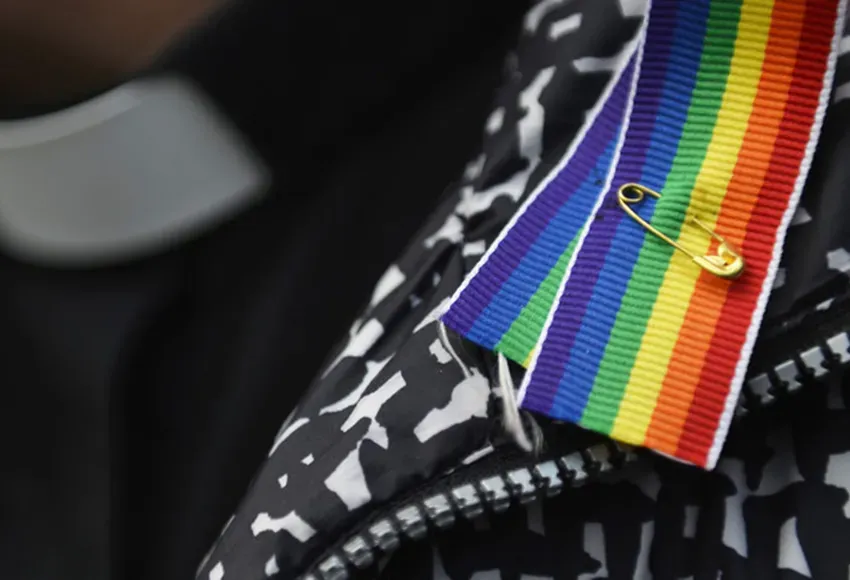Most Church of England priests support marriage equality
A survey conducted by the Times found that more than half of the priests in the Church of England support marriage equality, which would involve a change in the law to allow clergy to preside over weddings of same-sex couples.
The survey showed that 53.4% of the clerics were in favor and 36.5% were opposed, in what is a major shift in attitude among the clergy from 2014, when the Times polled clergy following the legalization of marriage equality in England.
The survey further indicates deeper changes in attitude among the clergy concerning Queer issues more generally. It showed that 64.5% support ending the teaching that "homosexual practice is incompatible with Scripture," with less than a third (29.7%) saying that the Church of England's teachings on Queer people should not change.
These shifts come in the wake of a row that erupted last year at the Church of England's first Lambeth Conference in over 14 years, in which Archbishop of Canterbury Justin Welby faced overwhelming public criticism for maintaining current church teachings, affirming a 1998 declaration that homosexual sex is a sin.
Responding on behalf of the Church, the Bishop of Leeds, the Right Reverend Nick Baines, told the Guardian, "The church is the church, and, as such, not a club. It has a distinct vocation that does not include seeking popularity. Repentance means being open to changing our mind in order that society should encounter both love and justice. And this means sometimes going against the flow of popular culture, however uncomfortable that might be."
Advocates for Queer equality and inclusion, however, see things differently.
Andrew Foreshew-Cain, founder of the Campaign for Equal Marriage in the Church of England, said the survey showed there was "no excuse for further delay and equivocation" in welcoming Gay people into the church.
"The clergy of the Church of England are kinder, more generous, and more welcoming towards LGBTI people than the current official position allows," he said. "The C of E, and in particular our bishops, needs to stop wringing its hands over Gay people and move forward towards blessings and, in time, to celebrating same-sex marriages in our parishes."
Hong Kong court orders "alternative recognition"
Hong Kong's Court of Final Appeal ruled Tuesday against marriage equality, instead calling for an "alternative legal framework" to grant rights to same-sex couples.
The ruling comes after an appeal brought by pro-Queer and pro-democracy activist Jimmy Sham, which argued for the constitutional right to marry another man. The court dismissed the appeal, but according to Reuters, "effectively gave the government two years to ensure that rights, such as access to hospitals and inheritance, could be protected for same-sex couples."
In order to meet what the ruling calls "basic social requirements," Justice Patrick Keane added, "The absence of legal recognition of [a same-sex couple's] relationship is apt to disrupt and demean their private lives together in ways that constitute arbitrary interference."
A previous ruling in 2019 from a lower court in a separate case also sided against marriage equality, and also called for alternative legal recognition. Tuesday's decision affirmed the lower court's ruling, and made final the call for such an alternative framework.
Though it falls short of full marriage equality, in a statement to the Associated Press, Queer activists in Hong Kong called the ruling encouraging. "This judgment, we believe, will go a long way in attracting young talent coming to Hong Kong to work and live," said Hong Kong Marriage Equality co-founder Jerome Yau.
In a separate statement to Reuters, however, the group's campaign manager, Esther Leung, said the ruling is a "major step forward" but "falls short of what is really at stake in this case: full inclusion in marriage." Still, "it is a significant victory which makes clear that Hong Kong law must afford due respect and protections to same-sex couples. This will help families while hurting no one."
Hong Kong is a former British colony that is now a part of China, though it is ostensibly self-governing in all areas except defense and foreign policy. It has a "mini-constitution," known as the Basic Law, on the basis of which jurists render legal judgments.
In a poll conducted by the BBC earlier this year, 60% of Hong Kong residents supported marriage equality, up from 38% ten years ago.


